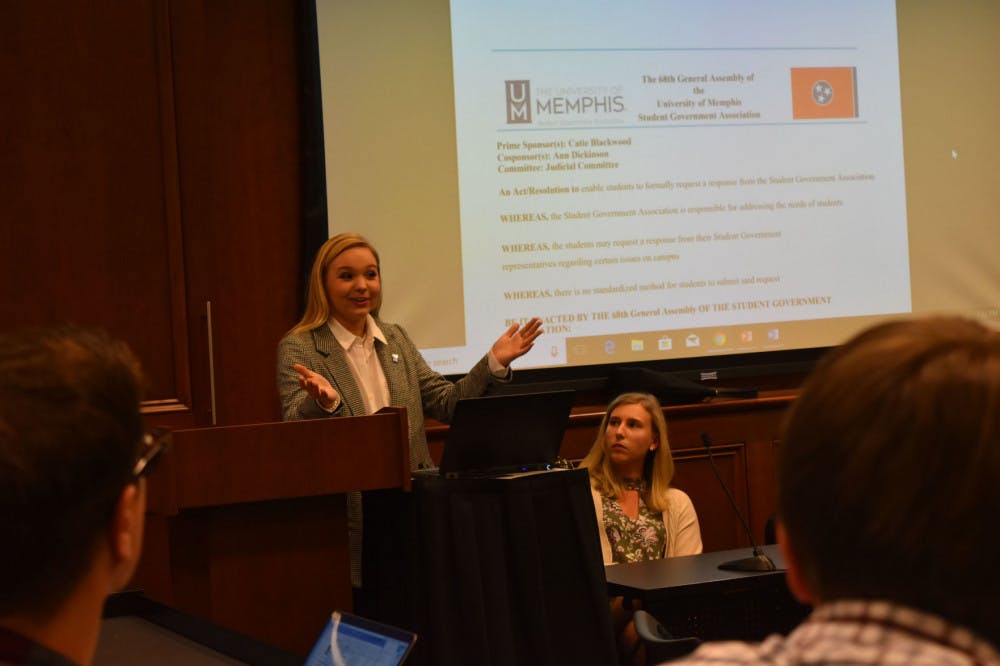The University of Memphis Student Government Association met Thursday afternoon and passed five new bills.
This senate passed these bills with hopes of making it easier for students to reach their SGA senators and for more convenience on campus.
The Response Bill was the first passed. Catie Blackwood, the primary sponsor of this bill, said this creates a place where students can go to request responses from SGA, rather than tweeting them.
“We decided that there really wasn’t an efficient way for SGA to communicate with the students and for the students to communicate with us,” Blackwood said. “And Twitter is not a useful way to communicate, so we just decided that there needed to be a slight change to how SGA does this.”
Blackwood said this bill would be implemented by the start of the fall 2018 semester.
Another one passed was the Tiger Life bill. Tiger Life is a program at the U of M that offers special needs students the opportunity to experience student life. Taylor Shennett, primary sponsor of this bill, said she works with the special needs community, and they are very close to her heart.
“Several of my good friends brought it to my attention that Tiger Life students don’t have access to sporting events,” Shennett said. “Immediately I found that strange, as they do pay for some fees, and a lot of students don’t use their access to games.”
Shennett said these students recently attended a game, and they loved it, with almost all attending. She also said Tiger Life administration is very excited about this bill.
Ethan Hodge, a 20-year-old teaching all learners major, worked for Tiger Life last semester as a paired professional and said he thinks this bill is a great idea.
“These students want to be involved as much as they can,” Hodge said. “I think it will be good for the program moving forward.”
The Restroom bill was the next passed. Dakota Averrett, the bill’s primary sponsor, said many restrooms around campus are lacking feminine hygiene receptacles.
“There are not enough feminine hygiene receptacles in all the bathrooms around campus,” Averrett said. “This is notably in Dunn Hall and the Theatre Building.”
Averrett said this bill would make sure these receptacles were installed in all female and gender-neutral bathrooms, and it should not be too expensive.
“I don’t see this being a huge cost,” Averrett said. “If it is though, it’s still worth it, and I expect the U of M to recognize that.”
Along with these, SGA also passed two travel bills for undergrad and graduate students and made a few changes to their SGA bylaws. SGA will no longer vote on travel bills.
SGA invited Richard Sayles, a student at U of M, to talk about the Student Valet bill, which was introduced last week. Sayles took a survey of students, and 55 percent of them said they would use a student valet service at the university. He was expected to come to the SGA meeting to gain their support, but he failed to show up, so SGA did not pass this bill.
SGA senator Catie Blackwood presents her rapid response bill to the senate. Blackwood wanted SGA to be able to respond to student concerns quicker.
SGA senator Taylor Shennett (second from left) presents her Tiger Life bill to her fellow senators. Shennett saw a need for Tiger Life students to be able to attend U of M events, so her bill aims to solve that.






